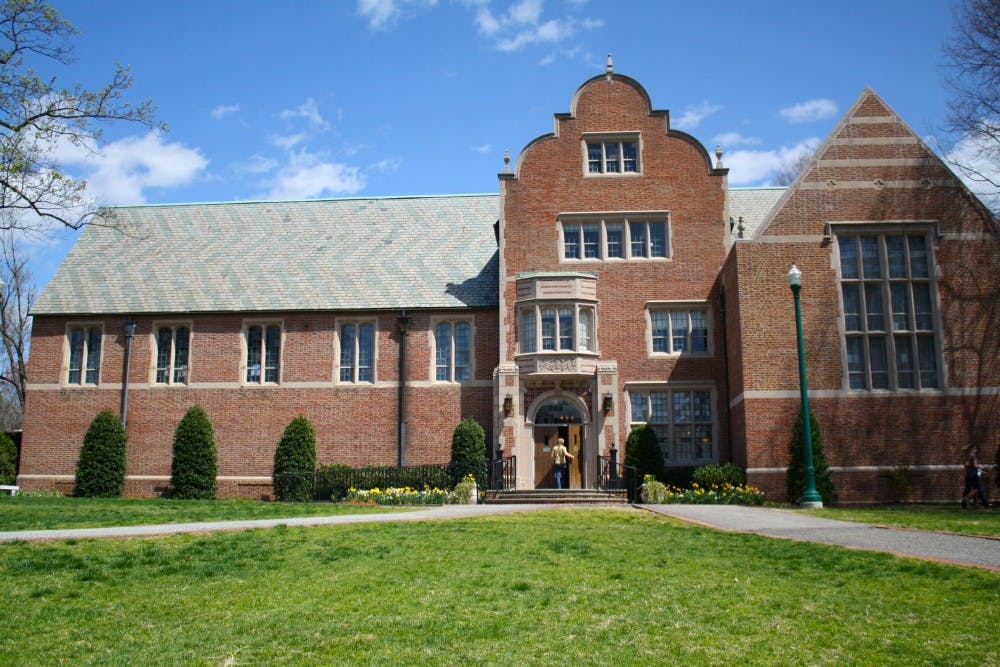The College Access Index ranked Richmond 66th on its list of top colleges doing the most for low-income students, placing between Ohio State and Yeshiva University.
The index, created by The New York Times, shows which American universities are doing the most to promote economic diversity on their campuses, a recent issue garnering attention from top schools.
Colleges are ranked based on several criteria: the share of students who receive Pell Grants, the graduation rate of those students and the price that colleges charge low-income students.
Pell Grants are federal money allocated to low-income students who are qualified for college but do not have the resources to pay for tuition.
A college with an average score receives a 1.0. Scores above 1.0 indicate the most effort. The University of California-Irvine earned the best score, 1.91, while St. Joseph’s finished 179th with a 0.39.
With a score of exactly 1.0, Richmond is still a far cry from the economic diversity superstars out West; seven of the top ten schools are located in California, but Richmond has improved significantly in the last decade.
“For the past seven years we have succeeded or matched the national average of students who receive Pell Grants,” said Gil Villanueva, dean of admissions. “And we are proud of that.”
In 2000, only 5 percent of incoming freshman at Richmond received Pell Grants, a number so low it would have taken Richmond out of the top 179 colleges listed on the Index today. In 2015, 17 percent of incoming freshman received Pell Grants.
Villanueva, who received a Pell Grant to attend Pitzer College in California after emigrating from the Philippines, has played an active role in recruiting a higher number of low-income students to Richmond.
“Financial aid is the great equalizer,” Villanueva said. “It puts you in a position to look at colleges you might not have because of tuition.”
Many under-resourced students attend schools close to home because they are unaware of financial aid options offered at top universities, some of which may actually cost less than what they are paying at their local colleges.
In 2009, Richmond launched “The Richmond Promise,” a program of financial aid built to expand socioeconomic diversity and increase the number of first-generation college students.
Enjoy what you're reading?
Signup for our newsletter
With the increase of Pell-eligible students, Richmond has also seen an increase in retention rates and a 50 percent increase in applications. Pell students also graduate at the same rate as other students on campus.
“That’s not a surprise,” senior Marin Kobb said. “There is a lot of support on this campus. That’s why we should encourage diversity.”
Richmond is now among the schools who are both need-blind in admission and meet 100 percent of demonstrated need. These schools represent less than 1 percent of colleges nationwide. Richmond's freshman class is crafted without taking into account a student’s ability to pay tuition.
“There’s a thought process that if you want to become more diverse, you have to sacrifice academic profile. We have debunked that notion.” Villanueva said. “This presses the theory that top students want diversity, all different types of diversity.”
The 17 percent of students who were Pell-eligible this year only accounts for undergraduates, and does not include the law, MBA, or continued studies programs.
The index also shows colleges’ endowments per student, a good indicator of a school’s resources. Richmond ranked 17th on the list with $480,000 per student.
“We should promote diversity because it gives people a more equal opportunity,” senior Molly Whitaker said. “It is important to be around people who aren’t just like you.”
Contact reporter William Shelton at william.shelton@richmond.edu.
Support independent student media
You can make a tax-deductible donation by clicking the button below, which takes you to our secure PayPal account. The page is set up to receive contributions in whatever amount you designate. We look forward to using the money we raise to further our mission of providing honest and accurate information to students, faculty, staff, alumni and others in the general public.
Donate Now



